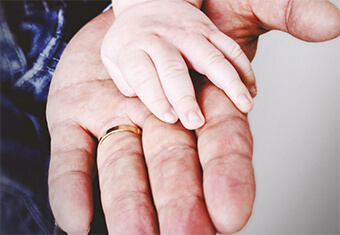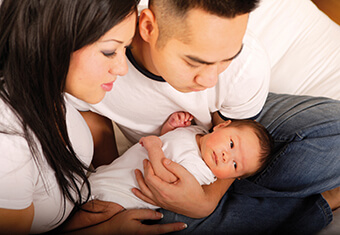Providing for our loved ones when we die is one of the most compelling reasons to make a will. If you have a disabled child this is even more important, as they will have specific and often costly needs that need special consideration.
The term ‘disabled’ can encompass a number of different disabilities. These could be physical and/or learning disabilities. People can be vulnerable for all sorts of reasons and careful thought should be given to the provisions that should be included to benefit them in a will.
What are the key considerations?
- Where will they live?
- What financial benefits are they already receiving?
- What help are other family members providing?
- What care plans are in place?
- While it may be difficult, it is also important to think about your child’s life expectancy and medical prognosis.
When all the above factors have been thought about carefully, a will can be drawn up and a number of options can be looked at to ensure that appropriate financial provision is included.
Option 1: Making an ‘absolute gift’
The will can include what is known as an ‘absolute gift’. This means that your child will receive a financial benefit that is unrestricted and that will belong to them to do with as they wish.
Provisions are usually made for trustees to look after that money on behalf of your child until they reach the legal age of majority (18), but after that the money will belong to your child without any restriction. Before choosing this option you should think about whether your child is likely to have sufficient capacity when they reach adulthood to make decisions about how they use that money.
The gift would, in time, form part of your child’s estate, so you also need to think about whether your child is likely to have sufficient capacity at the appropriate time to make a will.
If your child is receiving means-tested benefits, you should bear in mind that by giving an absolute gift, this would be taken into consideration in calculating benefits, which may then be lost. This therefore needs careful consideration to ensure that your child isn’t disadvantaged by your decision.
Option 2: Using a life interest trust
Another possible option is to use a ‘life interest trust’. This would mean that trustees appointed in your will would look after the money you have set aside for your child during your child’s lifetime. The trustees would usually invest this money and the income produced on the investments would be available for your child for the remainder of their life. When your child passes away, the remaining money would be passed onto other individuals, who you name in your will.
Bear in mind that the income your child receives will be taken into consideration when they are assessed for any means tested benefits (the capital will not be taken into consideration).
In certain circumstances, and depending on the wording of your will, the trustees can sometimes make a ‘one-off payment’ of capital to your child, for example to pay for a holiday, or buy some equipment. The amount of capital that can be used for these purposes can be restricted by the wording used in setting up the trust.
Option 3: Using a discretionary trust
Another option to consider is a ‘discretionary trust’. The trustees would look after the assets (property, money, etc) within the trust and they are given absolute discretion to use both the income and the capital for your child’s benefit. There can also be other beneficiaries (perhaps other children and grandchildren) who will be able to benefit from the trust.
If you set up this kind of trust in your will, you would be asked to provide a letter of wishes addressed to the trustees that you have chosen, which sets out how you would wish them to make decisions about the assets in the trust.
On the death of your disabled child, any assets remaining in the trust can be distributed to the other beneficiaries.
Tax consequences
When setting up any sort of trust in a will, you should take advice on the tax consequences of the various options to ensure that you understand the advantages and disadvantages of any choice that you make.
There is a particular sort of trust that can be advantageous to use, which is called a ‘Vulnerable Beneficiary Trust’. This trust is recognised by HMRC and gets special tax treatment.
The definition of a ‘vulnerable beneficiary’ and the various tax consequences are clearly set out on the GOV.UK website.
In these trusts the vulnerable beneficiary (the disabled child) is entitled to receive the benefits from the trust during the remainder of their lifetime. Only a small amount of assets in the trust can be used for the benefit of someone else while the disabled person remains alive. The other beneficiaries would be entitled to what remains in the trust after the death of the disabled child.
When the disabled child dies it should be noted that the assets in the trust will be treated as part of their estate for inheritance tax purposes before they are distributed to the remaining beneficiaries of the trust.
Relying on your other children
You may be considering relying on your other children to look after their disabled brother or sister after you have died, so you don’t plan to leave anything to your disabled child in your will. This is a dangerous option and not one that is to be recommended.
You may feel that your disabled child already receives means-tested benefits and so doesn’t require anything else. The state may take a different view, however, and it leaves your estate open to a claim being made under the Inheritance (Provision for Family and Dependants) Act 1975 for reasonable financial provision to be made from the estate for your disabled child. This would be costly and not in the best interests of anyone. It is always best to make some provision for a disabled child, rather than to leave them out of the will altogether.
Some other considerations
When giving instructions for your will, you should give special thought to the choice of trustees and guardians for your child, as they will have onerous duties and responsibilities after you have died.
You should also think about where the child will live and what practical arrangements will need to be in place. If they are to remain at home, your other children may have to wait a long time for their inheritance until after your disabled child has died and the property has been sold.
Finally, it should be noted that you can set up a trust to benefit your disabled child in your lifetime, as well as by will. This enables grandparents and other close relatives to benefit your child either during their lifetime or by leaving gifts in their wills that can be added to the trust for your child.
This is a complicated area of law, and if financial provision needs to be considered for your disabled child then it would be strongly recommended to take specialist advice from a qualified practitioner who will be able to discuss the family circumstances to ensure the right option is chosen.
Patricia Wass TEP
 UK
UK  Canada
Canada









